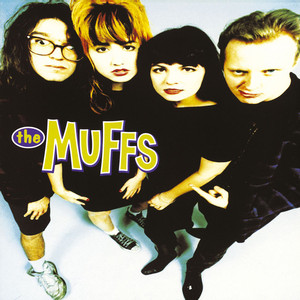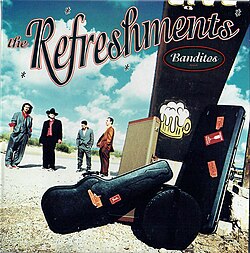 “Mr. Jones” by Counting Crows is one of those rare songs that captures both the spirit of an era and the restless longing of the human soul. Released in late 1993 as the lead single from the band’s debut album August and Everything After, the track introduced the world to the poetic angst of frontman Adam Duritz and helped propel Counting Crows into the spotlight during a moment in American music defined by introspection, alternative rock, and emotional honesty. Yet “Mr. Jones” is not simply a hit song from the 1990s—it is a layered, hauntingly vulnerable exploration of fame, identity, and the desperate hope that recognition might somehow bring clarity or wholeness. With a catchy rhythm and an unforgettable hook, it masquerades as a pop-rock anthem while subtly dismantling the very dreams it seems to celebrate.
“Mr. Jones” by Counting Crows is one of those rare songs that captures both the spirit of an era and the restless longing of the human soul. Released in late 1993 as the lead single from the band’s debut album August and Everything After, the track introduced the world to the poetic angst of frontman Adam Duritz and helped propel Counting Crows into the spotlight during a moment in American music defined by introspection, alternative rock, and emotional honesty. Yet “Mr. Jones” is not simply a hit song from the 1990s—it is a layered, hauntingly vulnerable exploration of fame, identity, and the desperate hope that recognition might somehow bring clarity or wholeness. With a catchy rhythm and an unforgettable hook, it masquerades as a pop-rock anthem while subtly dismantling the very dreams it seems to celebrate.
From the first strum of the guitar, “Mr. Jones” sounds like a song about yearning. It moves with a syncopated, almost Latin groove, a far cry from the grunge that dominated the alternative charts at the time. The production is loose and unpolished, raw in a way that feels more intimate than demo-like. But what draws listeners in most immediately is Adam Duritz’s voice—fragile, expressive, aching. He doesn’t sing like someone performing for a crowd. He sings like someone pouring his soul into a late-night phone call to a friend, and that vulnerability is the song’s beating heart.
The lyrics tell the story of two struggling musicians—Duritz and his friend Marty Jones, a bassist for the San Francisco band The Himalayans, with whom Duritz had played prior to forming Counting Crows. The song takes place in a bar, where the narrator watches a beautiful woman on stage and fantasizes aloud about the life he wants—the life they both want. He imagines being famous, adored, admired. “I want to be Bob Dylan,” he sings, name-checking not only the quintessential poetic rock star but also referencing the deep influence Dylan had on Duritz’s songwriting style. Mr. Jones, in the song, is the companion, the mirror, the fellow dreamer who gives voice to that shared ambition.
There’s a playfulness in the early verses of the song, an almost drunken joy in the fantasy of fame and women and meaning. Duritz sings about how being famous would finally make people listen to him, finally make women desire him. It’s a romantic, starry-eyed vision of rock stardom, one that feels instantly relatable to anyone who has ever dreamed of being bigger than the life they’re living. “We all want something beautiful,” he sings, “man, I wish I was beautiful.” It’s self-deprecating and sincere, not just a desire to be seen, but to be worthy of being seen.
But as the song progresses, the fantasy begins to unravel. The narrator starts to question the very dreams he’s clinging to. “When everybody loves me, I will never be lonely,” he sings in the chorus—a line that sounds triumphant the first time but becomes increasingly hollow with each repetition. Duritz isn’t celebrating fame so much as he is clinging to the idea that it will rescue him from his own emptiness. The song is as much about longing for connection and identity as it is about stardom. The “Mr. Jones” in the title might as well be every dreamer in the world who thinks success will fix the ache in their soul.
Adam Duritz has spoken often about the emotional and psychological dislocation he experienced after the band’s sudden rise to fame. In retrospect, “Mr. Jones” feels eerily prophetic. It captured the desire to be famous before Duritz and his band truly were, and it predicted the confusion and disappointment that often follows when those dreams come true. Duritz has described the song not as a celebration but as a warning. In interviews, he’s said, “The song is really about someone who wants to be someone else, and how that isn’t necessarily the answer to your problems.”
Counting Crows formed in Berkeley, California in 1991 and quickly developed a reputation for their emotionally rich lyrics and haunting melodies. Duritz, with his wild dreadlocks and expressive delivery, became a compelling and enigmatic frontman. August and Everything After was released in 1993 and became a slow-burning success, ultimately going multi-platinum. While other singles from the album like “Round Here” and “Rain King” also received acclaim, it was “Mr. Jones” that kicked the door open. The song received heavy rotation on MTV and radio, and for a brief moment, Counting Crows were catapulted into the spotlight they had so delicately questioned.
The song’s success was aided by its universality. While rooted in Duritz’s personal experience, its themes of longing, insecurity, and the myth of fame resonated widely. It came out during a period when alternative music was obsessed with authenticity and vulnerability. Bands like Nirvana, Pearl Jam, and Radiohead were rejecting the flashy aesthetics of 1980s pop and hair metal, replacing them with raw emotion and self-doubt. “Mr. Jones” fit into this cultural moment perfectly. It wasn’t cynical, but it wasn’t naïve either. It sat in the uneasy space between hope and disillusionment.
Musically, “Mr. Jones” is deceptively upbeat. The jangly guitars, bright rhythm, and singalong chorus make it one of Counting Crows’ most accessible tracks. But underneath that pop-rock exterior is a complex emotional landscape. The instrumentation mirrors the tension in the lyrics—bright and buoyant on the surface, but tinged with melancholy. This duality is part of what makes the song endure. It invites the listener in with its melody and then challenges them with its message.
Over the years, Duritz has continued to rework and reinterpret “Mr. Jones” in live performances. Sometimes he slows it down, sometimes he changes the lyrics. These variations aren’t just artistic flourishes—they reflect Duritz’s evolving relationship with the song and its themes. What once was a song of imagined escape became, after the band’s success, a song of lived disillusionment. In that sense, it’s never the same twice. It grows and changes with the man who wrote it, much like the dreams and disappointments it describes.
There’s a raw bravery in that kind of honesty. Duritz’s willingness to lay bare his insecurities and confusions—to say, essentially, “I thought being famous would fix me, but it didn’t”—runs counter to the traditional rock star narrative. In “Mr. Jones,” he dreams of being someone other people admire. But the song quietly suggests that admiration is a poor substitute for genuine connection, and that fame can sometimes deepen the very loneliness it promises to erase.
This message has made “Mr. Jones” something of a generational anthem. It’s a song for artists, for dreamers, for anyone who has ever believed that if only they could be recognized, understood, or adored, everything would fall into place. It speaks to the gap between the life we imagine and the life we live. And it does so with warmth, wit, and devastating clarity.
Critically, “Mr. Jones” received a mix of praise and skepticism when it was first released. Some critics found Counting Crows too earnest, too steeped in their influences—especially Van Morrison, The Band, and Dylan. But over time, the band earned respect for their lyrical sophistication and emotional candor. Duritz, in particular, has been recognized as a gifted lyricist, capable of weaving vivid imagery with emotional complexity. In “Mr. Jones,” that talent is on full display. It’s a song filled with color, movement, and yearning. It doesn’t just describe a scene—it puts you inside it.
There’s also a sense of bittersweet irony that hovers over the song’s legacy. The man who wrote about the longing for fame and its supposed cure for loneliness was, within a year, one of the most recognizable voices in music. And as the years passed, Duritz became increasingly open about his struggles with mental health, including dissociative disorder. In this light, “Mr. Jones” reads like a confession from a man who knew that external validation would never resolve the internal battles he faced.
Still, the song’s enduring popularity isn’t rooted in darkness. It’s not a dirge—it’s a dream. It captures that magical space of being young, unproven, and filled with infinite possibility. There’s joy in the fantasy, even if it’s fleeting. And there’s beauty in the way the song lets us feel that fantasy fully, even as it gently questions it.
“Mr. Jones” remains Counting Crows’ signature song, a track that has defined their identity and carried them through decades of touring, evolving lineups, and shifting musical trends. It’s a song that fans still scream for at concerts, still quote on social media, still feel in their bones. It has that rare combination of immediacy and depth—easy to sing along with, but rich enough to unpack for years.
For Adam Duritz, the song has likely become a kind of paradox—a youthful fantasy frozen in amber, both a triumph and a burden. But for listeners, it continues to serve as a mirror for our own longings and illusions. We are all, at some point, Mr. Jones. We all want to be heard. We all want to be beautiful. We all believe that something out there—fame, love, success—will finally make us whole.
And perhaps that’s the quiet power of “Mr. Jones.” It doesn’t offer easy answers or perfect conclusions. It invites us into the dream, then walks with us as we begin to question it. It reminds us that longing is part of being human, and that sometimes, even in the throes of confusion and disappointment, we can still find something beautiful—whether in a song, a moment, or the simple act of saying our dreams out loud.
In the end, “Mr. Jones” is more than a catchy tune from the ’90s. It’s a heartfelt snapshot of what it means to want more, to search for meaning, and to navigate the sometimes disorienting terrain between who we are and who we wish we could be. And in that space—messy, uncertain, deeply human—it finds a kind of magic that never really fades.


